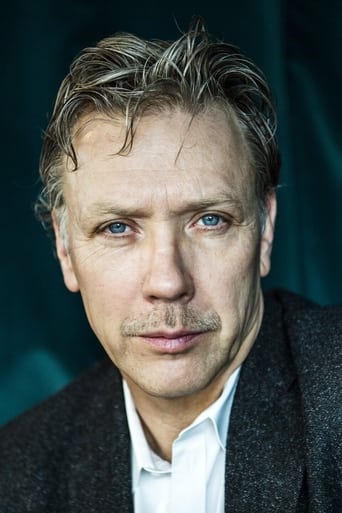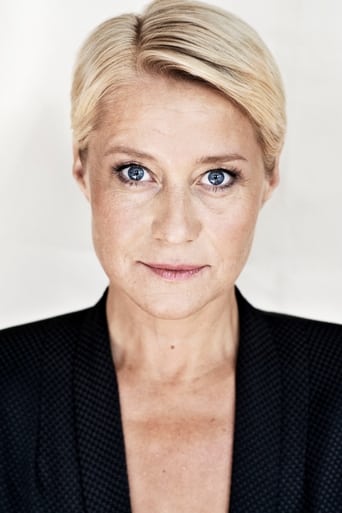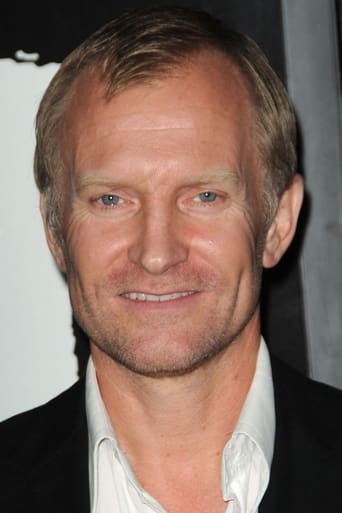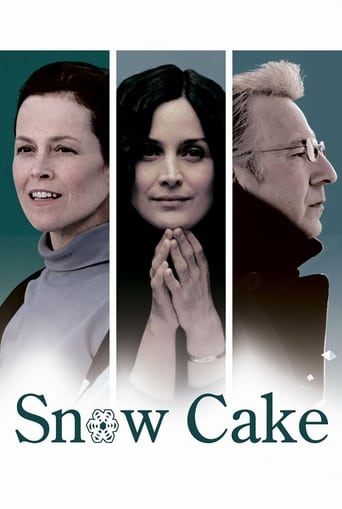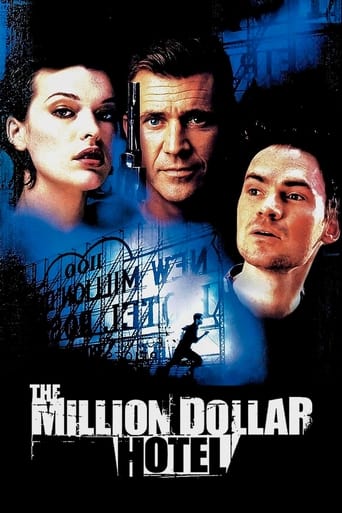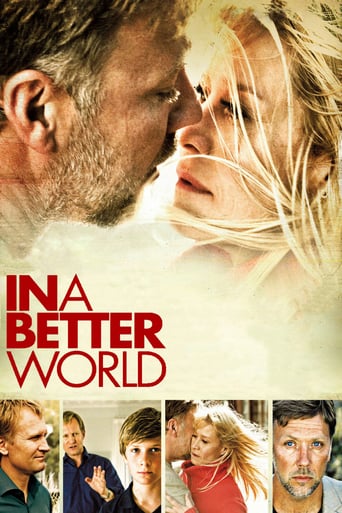
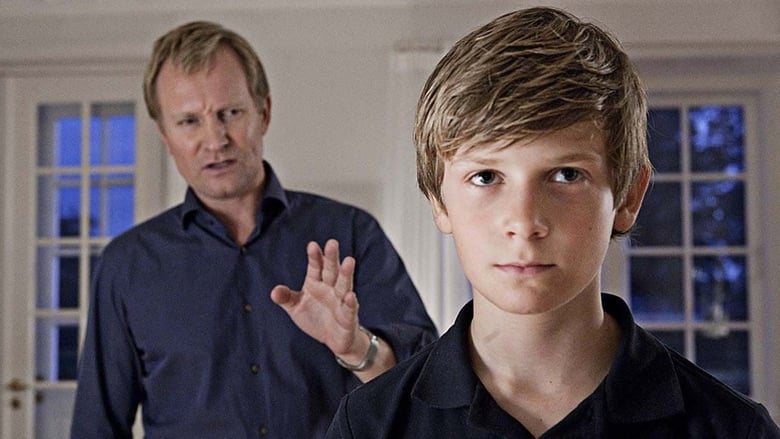
In a Better World (2011)
The lives of two Danish families cross each other, and an extraordinary but risky friendship comes into bud. But loneliness, frailty and sorrow lie in wait.
Watch Trailer
Cast
Similar titles
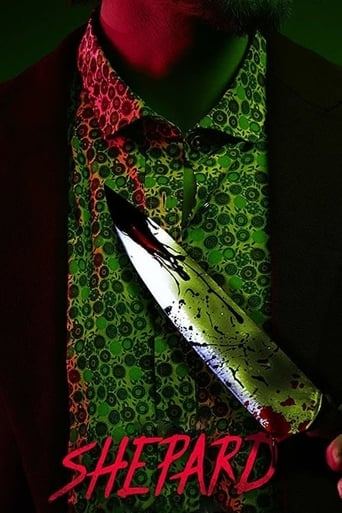


Reviews
the audience applauded
From my favorite movies..
All of these films share one commonality, that being a kind of emotional center that humanizes a cast of monsters.
This is one of the best movies I’ve seen in a very long time. You have to go and see this on the big screen.
I always like watching movies based on this topic, following a boy that has experienced a big tragedy and noticing how he thinks, responds, reacts and talks with other people. It was really tough seeing parents in both families struggling to communicate and cope with their kids' problems. Those are very vulnerable ages and really hard dealing with, as for their peers, as well for the grown ups surrounding them. I'm not even closely disappointed with the movie altogether, fascinated with acting (especially the kids' acting) and the message this movie sends to every child, and also to the parents that need to cooperate and be full of understanding and patience. I also shed a few tears, especially during the breakdowns which were quite emotional. Being not that far with these kids by age, I must say the temptations always existed but it is very important to resist them, particularly if they are close to the ones in the movie. So, my vote is a 9 out of a 10.
I got the opportunity to watch this film last night as part of my annual film club and had read the previous reviews so anticipated seeing it.Like some of the reviewers on here, I agree that it is filmed beautifully and the location and set are a great backdrop to the deep and thoughtful narrative encapsulating the audience.Both boys in the film absolutely steal the show and provide a very convincing performance where you sincerely believe they are both within the 'pact' together and that their friendship is solely based on vengeance - until the very end, when Christian admits that the very core of his demand for payback was remorse for his mother's battle with cancer (and repressing feelings toward his Dad).I agree with a few people on here in which the Africa plot was a little bit hard to distinguish against the main plot line as I believe they are trying to run both stories parallel but we don't spend enough time developing characterisation for the African's lives and their wives who had been targeted. Rather, our minds are more set on deciphering the boys relationship and where it's going to go next - the film would have been just as good (if not a little better) without it.Also, I couldn't help but think that towards the end of the film, it could have been wrapped up a bit quicker than what it did - whilst the landscape shots / and the birds in the sky do provide us with a slight metaphor about the beauty of life, I felt that they did get a little tedious to the end. Don't get me wrong, when used correctly this sort of thing can have a very strong impact, but in this instance I believe we just needed a conclusion to settle the story.All in all, a great film, challenging everyday emotions and morals, with a great cast who execute the film perfectly. Take out a few scenes and this would have been one for the vaults.
The grass is always greener on the other side - or isn't it? In a Better World, directed by Susanne Bier, presents the stories of characters who seem to be trapped between two worlds. We begin our journey with Anton (Mikael Åke Persbrandt), who works as a humanitarian aid doctor in an African refugee camp. Anton and his wife, Marianne (Trine Dyrholm), face marital problems and are able to avoid dealing with each other for large amounts of time by working on different continents. The couple argues, but the relationship takes a hopeful tone through mishaps involving their oldest son Elias (Markus Rygaard). The film also explores the life of Claus (Ulrich Thomsen), a businessman who recently lost his wife to cancer. Claus spends the majority of his time traveling to London for work, so his son Christian (William Jøhnk Nielsen) lives with his grandmother in Denmark after the passing of his mother. The two stories parallel each other and become connected through Elias and Christian. Christian and Elias quickly find companionship with each other. Both are portrayed as outcasts from the group, Elias because of his appearances and mannerisms, and Christian because of his status as the new kid at school. Together they endure bullying by an older classmate and struggle to find appropriate ways to deal with their difficulties at school.Their actions, spearheaded by Christian, have huge consequences on the boys' lives and present the idea of power and authority. Elias wants desperately to be accepted, and is willing to do anything to maintain his new friendship even if it means going against his parents and his better judgement. Nonetheless, the theme of companionship evolves as the two boys work together to find meaning if their lives and to navigate their complicated and tumultuous family situations. The main themes of conflict, loyalty, and morality blend together within the action of the film. The film is vague regarding the whereabouts of the refugee camp, however it is clear that the population there faces attacks from rival groups. When the film shifts back to Denmark it is apparent that the characters also face conflict. But rather than enduring physical harm, they are subject to intense emotional conflict in their relationships. I am unsure as to whether Bier intended for viewers to see the conflicts as similarities between both nations in that they are equally taxing on their populations, or if the intention was for viewers to recognize that people suffer grave injustices everyday that we cannot even begin to understand due to our privileges and opportunities in life. Loyalty and morality are explored through several relationships and characters are forced to make decisions that they are clearly unsure or unhappy about. For example, Anton struggles immensely with his decision to help the man who is responsible for killing and injuring so many innocent young women. He walks away from the situation unnerved about whether his actions are justifiable, but feels more secure with his decision when his actions prove his loyalty to the refugee population that he is there to help. Similarly, Elias struggles with his decision to join Christian in his plans to get retribution for themselves and for Anton. He recognizes that he goes against his better judgement, but cannot escape the situation without losing his only friend. To a certain extent, Christian also faces the dilemma of going against his family's values, but ultimately his disappointment and anger towards his father negate the sense of loyalty he feels towards respecting his father's authority. The dialogue, while appropriate and understandable, was sometimes unexpected or lacking. I thought about this mostly in relation to Anton's dialogue with the boys about with the mechanic, and how that part of the story seemed to stop abruptly even though it remained crucial to the storyline. Background noises such as wind chimes, wind gusts, rolling waves, and moving vehicles created a natural and realistic environment. This is especially true when paired with the wide landscape shots. The film showcased the landscapes of both worlds present within the film. During the transitions these landscapes even seemed to blend together sometimes, but were eventually recognizable by several factors such as color and types of structures that became visible. Susanne Bier is an accomplished film director, and has produced several well-known feature length films both in Danish and English. Her films often center around family and in an interview she claims that she speaks with her family regularly. Her sense of identity stems from these familial relationships and they inform the stories she tells. White Night Wedding certainly includes these characteristics and explores the pain involved in broken family lives and interconnected tragedies, which is also consistent with her other films. Bier is unofficially co- credited for Livet ar en schlager (Once in a Lifetime, 2000), which is a Dogme 95 film. The minimalistic style and juxtaposed close-ups that typically accompany her films are also present in this film. In a Better World is a successful film in it's critical approach towards morality and identity. Navigating our identities within the context of a larger groups is something that we as social creatures are required to engage in during our existence on Earth. As we create culture we are aware highly aware of how others perceive us, and we often respond in a way that we believe is expected of us. While thinking about these topics might not be comfortable for viewers, I recommend this film. It is important for us to be reminded that we as individuals are small in comparison to the world that we live in. We are interconnected and cannot rationalize our own opinions or actions by exempting ourselves from the larger society. Therefore we must remember to be critical of ourselves, as well as others, and recognize the personal obligations we have to uphold morality in society.
Eventually the great winner of the movie is Anton, the father of the Elias. And this is the main message the movie carries on. As i was over and over involved into the movie I was asking myself what is between the 2 different behaviors, getting revenge or adopting a more peaceful approach, the most successful one. And that is a question that recurs often in my life and I answered myself that I am towards a more peaceful approach as well. Or well I guess it may not really be if not entirely about this, at least surely not only about that. Indeed as Anton gives Bigmen to the angry crowd, there it is a successive development to the peaceful approach. And there I thought that there may be a natural order of the things, whereby they are settled, even if that may assume a more violent aspect. But maybe there is a sound and valid reason for that. And I found an enlightening explanation that is consistent with a sort of red line, linking or better, going beyond the mere juxtaposition between the 2 behaviors, getting revenge or answering with the other cheek. And that enlightening explanation lies in Anton's person. He, regardless the situation, the persons involved, the possible consequences of his actions, well he did what was the most fitting with his inner, personal "rules of living", rules is not an appropriate word according to me in this occasion, but I mean by that that there are certain values he believes in and that those guide him through life and his actions. And these values are those that he attempted to teach to the 3 kids when he went to visit the violent man working with the cars. Alongside a peaceful approach, his utter dedication to his job, meant as saving life, again regardless the persons involved, or what they did. Exactly as with his peaceful approach, regardless what the other person did to him. And also the fact that he kicks Bigman out of the camp is linked with him following his inner personality, with him doing what he feels like. So offending that woman, and thus touching his life-mission, saving people, plus profoundly disrespecting her, these inner values are what prompted in him that harsh reaction. Which is thus not to be linked with a desire of revenge. Was it revenge he would have not hailed Bigman. And well these 2 opposite are finely and wisely represented by the 2 main characters: Christian is the blind desire of revenge and Elias the peaceful approach, however both with some lacks: Christian is blind in it and Elias passively suffer bully ism, leading this to a likely inner sufferings, not that it's his fault to suffer bully's but well a reaction may be good, in order not to suffer that, maybe well surely not as strong as Christian's (even if successful, at least in that case, but proved to be wrong with the violent man, for instance, OK it was much bigger, but the concept behind was the same, a great reaction). What anyway leads Christian in his desire of revenge is his inner pain, his inner anger, and resentment towards the father, so he channels unsuccessfully such issues through others, with that feeling of revenge. So what will go over these 2 approaches is indeed represented by Anton, the person that wisely adopt a peaceful approach, obtains respect and goes thus further. And all these three situations are indeed represented by the three characters. And Anton is the one that could calm down Christian.So that's the profound aspect that is the core of the movie. And the allegories in the movie, calling the profoundity of the issues are really superb. So these 3 behaviors, plus the combination between Africa and Denmark was really successful and that gave us the extent to which Anton's approach is successful, regardless facing a crazy boss of African mercenaries or some violent man in his town. All in all the movie was really well done, and well very well acted. Christian's actor is really good. Well I gave this movie a 9, totally deserved that. And plus there are many other interesting things in the movie. Really a profound movie. And the message carried is so clear and successful, Really a movie that makes u think and reflect, about also how to conduct your life. It indeed made me proud of thinking that I adopt a peaceful approach but also more with Anton's approach, one for which, you may be peaceful but the knowledge of being right, of being on the side of the good, gives you so much power that no punch, no slap would ever give you. Because once you'll take action, that action will be so strong in its consequences that the person that was treating you bad, won't even have the chance to reply. And that is exactly what happened to me recently and it's very very similar to when Anton kicked out of the camp big man. Really.
